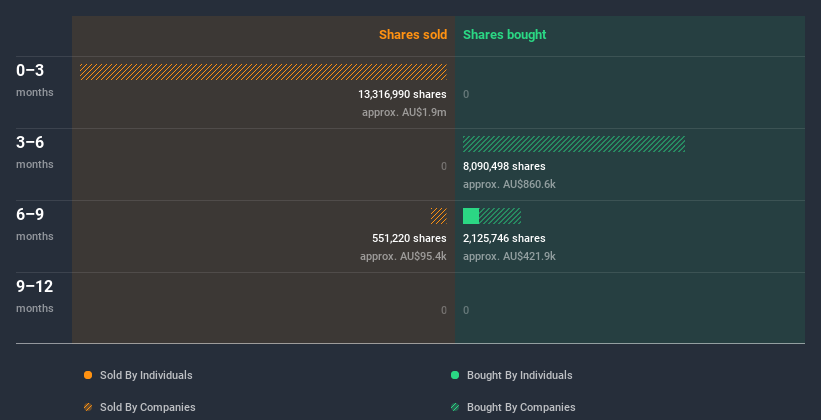Are Insiders Buying Cash Converters International Limited (ASX:CCV) Stock?

We've lost count of how many times insiders have accumulated shares in a company that goes on to improve markedly. The flip side of that is that there are more than a few examples of insiders dumping stock prior to a period of weak performance. So before you buy or sell Cash Converters International Limited (ASX:CCV), you may well want to know whether insiders have been buying or selling.
What Is Insider Buying?
Most investors know that it is quite permissible for company leaders, such as directors of the board, to buy and sell stock in the company. However, such insiders must disclose their trading activities, and not trade on inside information.
We don't think shareholders should simply follow insider transactions. But logic dictates you should pay some attention to whether insiders are buying or selling shares. For example, a Harvard University study found that 'insider purchases earn abnormal returns of more than 6% per year'.
View our latest analysis for Cash Converters International
The Last 12 Months Of Insider Transactions At Cash Converters International
Over the last year, we can see that the biggest insider purchase was by Executive Deputy Chairman Peter Cumins for AU$142k worth of shares, at about AU$0.24 per share. So it's clear an insider wanted to buy, even at a higher price than the current share price (being AU$0.18). It's very possible they regret the purchase, but it's more likely they are bullish about the company. In our view, the price an insider pays for shares is very important. It is encouraging to see an insider paid above the current price for shares, as it suggests they saw value, even at higher levels. Peter Cumins was the only individual insider to buy during the last year.
You can see the insider transactions (by companies and individuals) over the last year depicted in the chart below. If you want to know exactly who sold, for how much, and when, simply click on the graph below!
Cash Converters International is not the only stock insiders are buying. So take a peek at this free list of growing companies with insider buying.
Does Cash Converters International Boast High Insider Ownership?
Many investors like to check how much of a company is owned by insiders. Usually, the higher the insider ownership, the more likely it is that insiders will be incentivised to build the company for the long term. Based on our data, Cash Converters International insiders have about 4.0% of the stock, worth approximately AU$4.3m. We prefer to see high levels of insider ownership.
What Might The Insider Transactions At Cash Converters International Tell Us?
The fact that there have been no Cash Converters International insider transactions recently certainly doesn't bother us. However, our analysis of transactions over the last year is heartening. The transactions are fine but it'd be more encouraging if Cash Converters International insiders bought more shares in the company. So while it's helpful to know what insiders are doing in terms of buying or selling, it's also helpful to know the risks that a particular company is facing. To that end, you should learn about the 2 warning signs we've spotted with Cash Converters International (including 1 which is potentially serious).
If you would prefer to check out another company -- one with potentially superior financials -- then do not miss this free list of interesting companies, that have HIGH return on equity and low debt.
For the purposes of this article, insiders are those individuals who report their transactions to the relevant regulatory body. We currently account for open market transactions and private dispositions, but not derivative transactions.
This article by Simply Wall St is general in nature. It does not constitute a recommendation to buy or sell any stock, and does not take account of your objectives, or your financial situation. We aim to bring you long-term focused analysis driven by fundamental data. Note that our analysis may not factor in the latest price-sensitive company announcements or qualitative material. Simply Wall St has no position in any stocks mentioned.
Have feedback on this article? Concerned about the content? Get in touch with us directly. Alternatively, email editorial-team@simplywallst.com.

 Yahoo Finance
Yahoo Finance 
